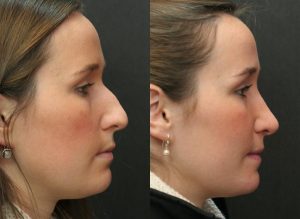Gluten VS Wheat Intolerance: What’s the difference
Wheatsheaf old glossop | Health and Beauty
A lot of people tend to mistake wheat sensitivity with gluten intolerance. Whereas, they are not similar by any means. There are several people who suffer from symptoms related to wheat sensitivity or gluten intolerance, except people with Celiac Disease or Wheat allergy.
These people may encounter similar symptoms; however, they do not fall into the category of wheat allergy or CD.
So, how can you get out of this head-scratching situation? Don’t worry. We’re here to help you out.
What is Gluten?
Let’s start with the basics. Gluten is found in multiple grains, such as wheat, barley, rye, etc. On the contrary, wheat contains gluten, however, it comprises several other components.
Gluten holds these grains together and gives them a defined and flexible structure.
Without gluten, your favourite pasta would lie flat or fall apart. In addition, it would become stiff and hard to chew. Moreover, your bread remains soft and chewy, with an ideal texture, all thanks to gluten.
Wheat VS Gluten Intolerance
Gluten intolerance and wheat sensitivity are two separate ailments that obviously overlap, and this is where the misconception often arises. Furthermore, while each person’s symptoms are unique, they can be nearly identical, including diarrhoea, bloating, cramps, constipation, exhaustion, headaches, and an overall feeling of malaise.
Gluten intolerance refers to a sensitivity to gluten-containing cereals such as wheat variants like barley, rye, and wheat itself. On the other hand, wheat intolerance is limited to wheat and its variations and not to other cereals and grains with gluten. As one may expect, gluten intolerance can be significantly more restrictive compared to wheat intolerance.

Foods You Need to Avoid
You should take a wheat intolerance test to know if have wheat sensitivity or gluten intolerance. If you test positive for either of the two, the primary remedy for you is to cut down on foods comprising gluten or wheat.
In addition, you need to understand the foods containing gluten or wheat to choose your diet better.
However, this task can be challenging, as gluten is more prevalent in foods compared to wheat. Remember, gluten is present in wheat. It is a protein, while wheat is a grain. So, let’s start categorizing:
Common Sources of Wheat
Wheat is prevalent in many baked foods, like muffins and cookies. Moreover, several meals are made from wheat flour. Keep an eye for bulgur wheat, pasta, couscous, hydrolyzed wheat proteins, durum wheat, Kamut, and semolina. In addition, you may also find wheat in breakfast cereals, breadsticks, breadcrumbs, soy sauces, beer, and substitutes for meat like seitan.
Common Sources of Gluten
Gluten includes a much larger variety of foods, like products produced from rye, wheat, oats, and barley. Moreover, you can find gluten in malts and brewer’s yeast.
Final Thoughts
To cut it short, if you suffer from a wheat sensitivity, you may be able to enjoy several foods containing gluten. On the contrary, gluten intolerance is much more restricted, so you may have to narrow down your diet options. In addition, you should get a wheat intolerance test done to find out what treatments can suit you and how you can manage your wheat intolerance or gluten sensitivity.





